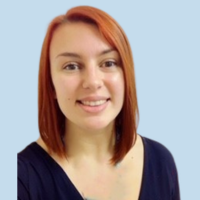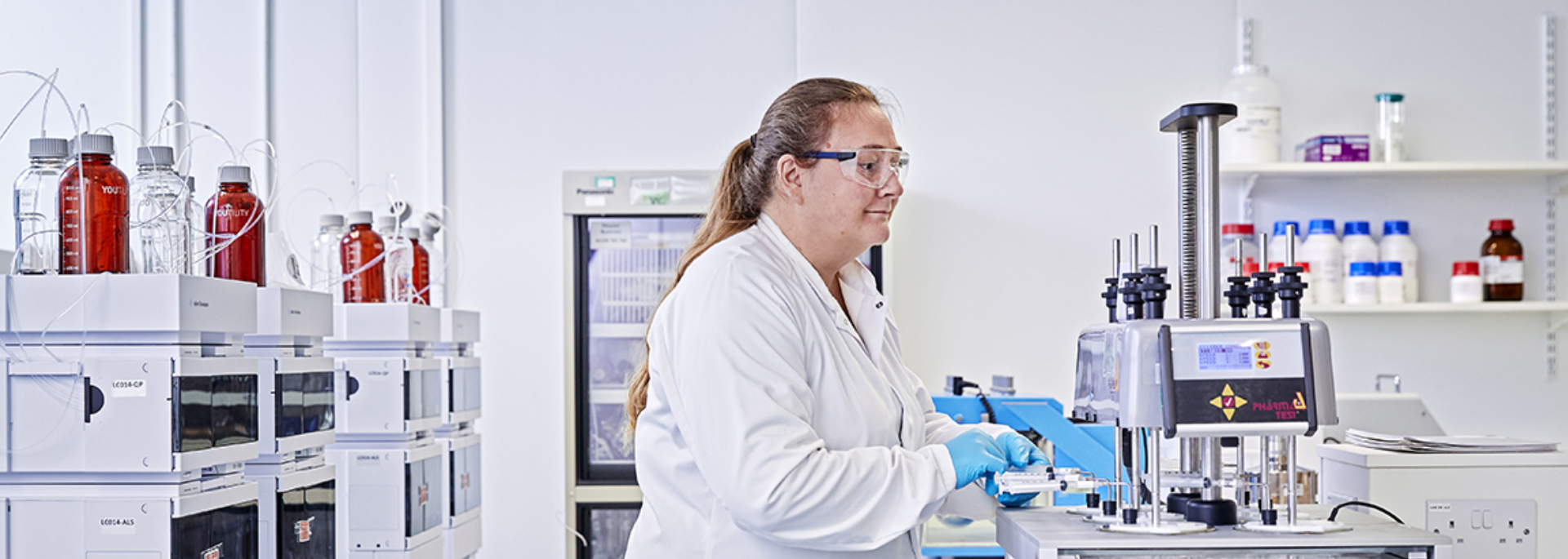Bioanalysis is a critical part of drug development. From drug discovery, through to pre-clinical and clinical studies, understanding drug exposure, safety, and metabolism are essential in accelerating drugs to clinic and commercialization. In this article, we talk to Paige Bellis, Head of ICP-MS Bioanalytical Operations, to find out more about ICP-MS capabilities and the bioanalytical team at Quotient Sciences.
What is your background and your current role at Quotient Sciences?
I joined Quotient Sciences six years ago as a Bioanalyst after graduating from Northumbria University, where I studied Biomedical Science. As a Bioanalyst, I processed samples through ICP-MS, LC-MS, and GC-MS, and later had the responsibility of leading ICP-MS and LC-MS studies when I took on the role of a Responsible Scientist. I later moved to a role in Project Management where I managed large-scale projects with multiple vendors and also learned more about other departments within Quotient Sciences.
Recently, I was appointed as the Head of ICP-MS Bioanalytical Operations and manage the Bioanalytical ICP-MS team. Part of my role is to lead, develop, and coach the Responsible Scientists and Bioanalysts to deliver ICP-MS customer projects successfully. I also act as the Project Manager for all ICP-MS projects to deliver client objectives in a timely and accurate way.
How is the bioanalytical ICP-MS team structured at Quotient Sciences?
The bioanalytical ICP-MS team is an expert group at Quotient Sciences that includes a cross-functional team of scientists who can support an entire study. Each team member brings a wealth of insight to every project we work on, some with decades of experience working in industry.
Stuart McDougall is our Bioanalytical Principal Research Fellow with over 30 years of experience in the field. He has actively participated as a member of the European Bioanalytical Forum (EBF) and the American Association of Pharmaceutical Scientists (AAPS) for many years. In 2022, he contributed to the EBF’s workshop and corresponding sessions discussing the implementation of ICH-M10, a new guideline that went into effect in January 2023. This was an important milestone because it unified and harmonized the existing regional guidelines (e.g. FDA, EMEA, PMDA, ANIVSA, etc).
Our Method Developer has over a decade of experience and is responsible for developing robust and precise ICP-MS methods for quantitative measurement of the target element in biological matrix. Some of the challenging projects we have faced have included total copper and arsenic speciation, and quantitative tissue analysis.
Once the method has been developed, our Bioanalysts play a critical role in validating the elemental assays following ICH-M10, and support both clinical and non-clinical sample analysis using industry-leading ICP-MS and ICP-MS/MS instrumentation. Bioanalysts work closely with our Responsible Scientists, who direct projects to ensure we provide regulatory-compliant data for our customers.
Aside from adherence to ICH-M10 guidelines, in what other ways does Quotient Sciences ensure compliance with global regulatory standards?
Our bioanalytical laboratory is located within the Quotient Sciences – Alnwick facility. It is routinely inspected by the UK MHRA for compliance with Good Laboratory Practice (GLP) and Good Clinical Practice (GCP) standards. We have supported many customers who have submitted their bioanalytical ICP-MS data to regulatory authorities including the US Food and Drug Administration (FDA) and have successfully registered their new drugs.
Last year, the US FDA audited three bioequivalence studies at Alnwick for a renowned pharmaceutical company during an unplanned, study-specific inspection. The FDA inspection and audit were successful.
The bioanalytical ICP-MS team is an expert group at Quotient Sciences that includes a cross-functional team of scientists who can support an entire study. Each team member brings a wealth of insight to every project we work on, some with decades of experience working in industry.
Are there more specialized capabilities available, and in what cases would they be used? What have been some common, as well as some of the more uncommon, requests from customer programs?
We support a range of studies, from pre-clinical to Phase III clinical trials, by ICP-MS. Our team have validated many preclinical and clinical assays in many matrices including blood, plasma, urine, faeces and tissues. Those assays have been used to analyse samples for dose-ranging studies, GLP toxicology studies, and many clinical studies.
For New Chemical Entities (NCE) that can not be readily measured by conventional assays such as LC-MS, but contain a unique element, Quotient Sciences have been able to provide ADME for drug development programs (Elemental ADME). As part of this we can also support elemental profiling and speciation using LC-ICP-MS to determine biotransformation. And for complex samples that require additional homogenisation, such as tissues, food or excreta, we have both mechanical (bead, ultrasonic, Turrax and Stomacher) and high-capacity Ultrawave microwave digestion capability.
We have extensive experience with quantitative elemental analysis for both PK endpoint (elements in drugs) and PD biomarkers, monitoring changes in element levels in disease states and after treatment. The team has experience analysing many elements, ranging from antimony to zinc. This experience enables us to collaborate with our customers to solve challenges and produce high quality data on time to achieve the best outcome for the project.
Learn more about bioanalysis capabilities at Quotient Sciences.










